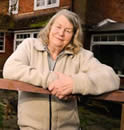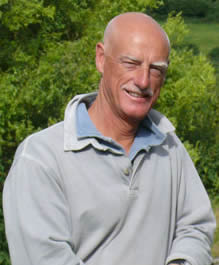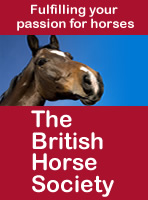
Horseytalk.net/Hoofbeat EXCLUSIVE
RIDER RIGHTS

Yately Common
Maureen Comber writes to Jim White(1), Footprint-Ecology:
Yateley Common, Hampshire
- It surprised me that no mention is made in the Introduction that both Yately and Broxhead commons, come under the Law of Property Act 1925 sec.193, which permits 'air and exercise' to include horse riders.
- This means access to all of the common and not just to bridleways.
- It would appear that the public are being asked questions without knowing the true state of affairs.
- I was also concerned to see the common was used for cycling because cycling on common land is illegal
- It seems strange to me that grazing is even a consideration since the MOD or HCC can only have the common land vested in their care. They are not owners of the land and even if they were could only have quasi rights for grazing. They are not even commoners, so do not have the right to graze. Their only remit is to protect public access and enjoyment and make sure no encroachment or works take place.
Says Maureen Comber
 I have now caught up with your report on the consultation of Yately Common. It seems to me that the only reason for a consultation is to test the water of public opinion as to grazing
as a form of management. Other reasons such as fly tipping and motor vehicles accessing the common land, already have perfectly reasonable ways of control. Other management
methods would hardly justify consultation since they are already practiced and are unlikely to cause a major change in the landscape in the same way that fencing does.
I have now caught up with your report on the consultation of Yately Common. It seems to me that the only reason for a consultation is to test the water of public opinion as to grazing
as a form of management. Other reasons such as fly tipping and motor vehicles accessing the common land, already have perfectly reasonable ways of control. Other management
methods would hardly justify consultation since they are already practiced and are unlikely to cause a major change in the landscape in the same way that fencing does.
I might even be tempted to think that for the County Council to undertake these expensive public consultations, there must be something like a pot of gold at the end of the procedure once all the right boxes have been ticked; but perhaps that is just me being cynical.
Our common lands are traditionally open spaces, some vast and some quite small. Some with public access and some without. It surprised me that no mention is made in the Introduction that both Yately and Broxhead commons, come under the Law of Property Act 1925 sec.193, which permits 'air and exercise' to include horse riders. This means access to all of the common and not just to bridleways. It would appear that the public are being asked questions without knowing the true state of affairs.
It is therefore disturbing to see at summary 4b, ten requests for better maintenance for bridleways and another request for more bridleways.
Why is this do you think? Have riders rights been compromised by misinformation from the land manager, as they seem not to realise that they have the right to ride on the common as a whole? Also a suggestion in spite of this that there should be more restrictions for horse riders. I have to ask how it is that such proposals are made in seemingly total ignorance of the legal situation? Surely it can only be that the legalities with regard to public rights have not been properly explained.
You say that there is general support for grazing so long as effective management is in place, but just how would that management be effective? As I understand it, no insurance company would take the risk of insuring common land as it is, without the added hazards of fencing and stock. So who would accept responsibility if a person was injured or even tripped while taking avoiding action of the stock?
It seems to me that with so much recreational activity going on, grazing is an inappropriate proposition from the start. This view is apparently supported in the summary, for example in question b8 where numerous concerns were voiced over possible negative outcomes.
I was also surprised to see such a low response recorded from horse riders, para 4.1, as I know how popular the area is for horse riding, unless that is there are no facilities for crossing the A33 which can be impossible to cross just like many other A class roads in Hampshire. I think I am right in saying there is only one Pegasus crossing in the whole county!
I was also concerned to see the common was used for cycling because cycling on common land is illegal. I believe common land itself takes precedence to highway where such crosses common land. In any case cycling on bridleways is not a right but a concession and one that would probably not be supportable where the bridleway runs over common land.
In para 4.4 with regard to amenities offered there are thirty responses regarding riding access, long rides and circular rides, which sounds to me as if the figure given in para 4.1 might be too low?
Dogs and dog mess seemed to be by far the main concern, otherwise people seem to be fairly content with the way things are at present.
Para 5.6 Given the high interest in Work Parties, Support Groups and Education and with the emphasis from central government being on volunteering, it seems to me that there is ample scope for the traditional management of cutting and burning and clearing when appropriate. This will be a much safer way of protecting interest in the common itself as a public asset, as well as ensuring that the SSSI's are safeguarded from the scrunching and munching and flattening inevitable by the introduction of livestock.
It seems strange to me that grazing is even a consideration since the MOD or HCC can only have the common land vested in their care. They are not owners of the land and even if they were could only have quasi rights for grazing. They are not even commoners, so do not have the right to graze. Their only remit is to protect public access and enjoyment and make sure no encroachment or works take place. This is something that they have singularly failed to do in my personal experience.
I would also say that fencing these last remaining open spaces not only changes the character of the area but is against the very legislation enacted by Parliament to protect it.
It could even be the thin end of a very nasty wedge eventually leading to desecration by ploughing or, in our ever shrinking island, eventually building.
Sadly I believe that grazing on common lands must be a thing of the past. Long gone are the days when the occasional phaeton or mail coach would pass. Splitting contiguous common by fences can only restrict our freedom or right to roam more seriously than is presently the case. It is difficult enough just trying to cross a road let alone negotiate fencing and gates as well.
To me fencing on the pretext of grazing is a surreptitious form of land enclosure which appears to be happening on a large scale throughout the country. It is being done on the pretext of a return to historical commoning at the same time that our rights of access are being seriously compromised.
The Hampshire and Isle of Wight Trust were supposed to manage Broxhead Common. Their management method was to restrict access to it by letting it overgrow so the wildlife would not be disturbed. That experiment has obviously failed as the commonland has consistently deteriorated under their management scheme which has been conducted at the expense of public access especially where horse riders are concerned.
For the reasons given above you will see that the BHS in Hampshire and generally are not in favour of fencing our last remaining open spaces, our common land.
I am pleased you have heard from Bob already. Please take his response as officially from the BHS, and mine also.
I need to have that response from HCC ASAP so that I can comment before the deadlines. If you are unable to show what evidence you have for saying that "80 acres of Broxhead was reclaimed to agriculture and the registration as common land was extinguished" it can only give credibility to my assertions above that the present consultation is based on misleading and incorrect information in the first instance and therefore cannot be taken seriously.
Who is Jim White ?
 Jim White worked for some 30 years for the predecessor bodies to Natural England.
Jim White worked for some 30 years for the predecessor bodies to Natural England.
As Conservation officer for NCC and then English Nature in Dorset, Jim had direct responsibility for the identification and designation of a range of sites across the county including most of the county’s140 SSSIs. Later, as Team Manager, he led the team which secured the designation of the entire suite of heathlands as SAC, SPA and RAMSAR sites, Poole Harbour as an SPA and RAMSAR site, and the inscription of the Dorset coast as a major part of the only natural World Heritage Site in England.
Jim has extensive experience of European legislation on wildlife conservation including the Habitat and Birds Directives and the UK legislation that flows from these. He has acted in numerous public inquiries both as expert witness and advocate.
Jim’s considerable experience extends to the field, and he is a notable naturalist. On retiring from Natural England, Jim was elected to serve as a Trustee for the Dorset Wildlife Trust and currently chairs the Trust's Conservation Panel. In 2008 Jim was awarded an MBE for services to nature conservation in Dorset.
 Read Bob Milton's opinion:-
Read Bob Milton's opinion:-
Bob Milton - writes to Jim White, Footprint-Ecology:
Yateley Common, Hampshire [8.10.12]
What is your opinion?
Let us know.






